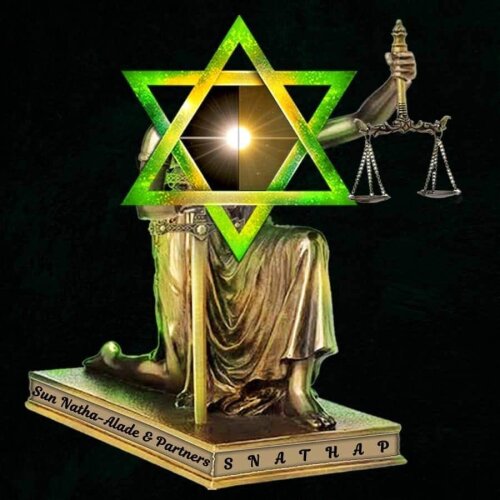Best Technology Transactions Lawyers in Ibadan
Share your needs with us, get contacted by law firms.
Free. Takes 2 min.
List of the best lawyers in Ibadan, Nigeria

HARLEM Solicitors, Chief Wole Olanipekun (san) CRESCENT, AGODI G.R.A, IBADAN
15 minutes Free ConsultationAbout Technology Transactions Law in Ibadan, Nigeria
Technology transactions law in Ibadan, Nigeria encompasses legal services related to the development, acquisition, licensing, and sale of technology and software products. This field covers a wide array of legal aspects, including intellectual property rights, data protection, e-commerce regulations, and contract negotiations. Ibadan, known for its burgeoning tech scene and rich academic presence with institutions like the University of Ibadan, is fertile ground for tech innovations, making the need for technology transactions advice more pertinent than ever.
Why You May Need a Lawyer
Engaging a lawyer for technology transactions is crucial in various scenarios. Common situations include negotiating and drafting software licensing agreements, navigating data privacy concerns, protecting intellectual property, ensuring compliance with local and international regulations, and resolving disputes relating to technology use. Businesses may also require legal guidance on partnerships and collaborations involving technology, or when faced with cyber-security and data breach issues.
Local Laws Overview
Several key local laws govern technology transactions in Ibadan and Nigeria as a whole. The Nigerian Data Protection Regulation (NDPR) is critical in managing personal data in technology dealings. The Cybercrimes (Prohibition, Prevention, etc.) Act of 2015 addresses cyber-related offenses and provides a framework for prosecuting such crimes. Intellectual property is protected under various laws, including the Patents and Designs Act, the Trade Marks Act, and the Copyright Act, crucial for safeguarding technology and software products. Contractual arrangements are guided by the Nigerian Contract Law, ensuring all tech engagements comply with legal standards.
Frequently Asked Questions
What is a technology transaction?
A technology transaction is any contractual arrangement related to the development, sale, licensing, or acquisition of technology. It often involves intellectual property rights and the transfer or sharing of technology between parties.
Why are technology transactions important?
Technology transactions provide legal frameworks for businesses and individuals to protect their technological innovations, ensure compliance with laws, and manage relationships and expectations between parties in a tech deal.
What are the typical legal issues in technology transactions?
Common legal issues include intellectual property protection, data privacy concerns, compliance with regulatory standards, cyber security risks, and contract disputes concerning technology agreements.
How do intellectual property rights affect technology transactions?
Intellectual property rights are central to technology transactions as they provide legal protection for innovations. Proper management and negotiation of these rights are essential to ensure creators and developers retain value from their inventions.
What is the role of licenses in technology transactions?
Licenses allow creators to permit others to use, modify, or distribute their technology while retaining ownership. Licensing agreements specify the terms and conditions under which technology can be used by third parties.
Is data protection a concern in technology transactions?
Yes, data protection is a significant concern, especially with regulations like the NDPR in place. Parties involved in technology transactions must ensure the proper handling and security of personal data to avoid legal repercussions.
What should be included in a technology contract?
A technology contract should outline the scope of work, deliverables, payment terms, intellectual property rights, confidentiality clauses, dispute resolution mechanisms, and termination conditions.
How can disputes in technology transactions be resolved?
Disputes can be resolved through negotiation, mediation, arbitration, or litigation, depending on the terms specified in the technology contract and the nature of the disagreement.
What should I consider when negotiating a technology transaction?
Consider the scope and terms, ownership and rights of the technology, risk management, regulatory compliance, and exit strategies. It's essential to clearly understand and agree on these elements before finalizing a deal.
How can legal advice help in technology transactions?
Legal advice ensures compliance with laws, protects intellectual property, drafts comprehensive agreements, mitigates risks, and resolves disputes efficiently, fostering smoother technology dealings.
Additional Resources
For further assistance, consider reaching out to the Nigerian Bar Association for information on local legal practitioners specializing in technology transactions. Governmental bodies like the National Information Technology Development Agency (NITDA) provide guidelines and regulatory information pertinent to technology usage. Additionally, the University of Ibadan and other academic institutions often host seminars and provide resources on technology and legal intersections.
Next Steps
If you need legal assistance in technology transactions, the first step is to identify experienced legal professionals in Ibadan who specialize in this area. Prepare all relevant documents and details of your transaction before consulting a lawyer. Clearly outline your objectives and concerns to ensure effective guidance, whether for contract drafting, compliance checks, or dispute resolution. Engaging a qualified lawyer early in the process can prevent potential legal issues and protect your technology investment.
Lawzana helps you find the best lawyers and law firms in Ibadan through a curated and pre-screened list of qualified legal professionals. Our platform offers rankings and detailed profiles of attorneys and law firms, allowing you to compare based on practice areas, including Technology Transactions, experience, and client feedback.
Each profile includes a description of the firm's areas of practice, client reviews, team members and partners, year of establishment, spoken languages, office locations, contact information, social media presence, and any published articles or resources. Most firms on our platform speak English and are experienced in both local and international legal matters.
Get a quote from top-rated law firms in Ibadan, Nigeria — quickly, securely, and without unnecessary hassle.
Disclaimer:
The information provided on this page is for general informational purposes only and does not constitute legal advice. While we strive to ensure the accuracy and relevance of the content, legal information may change over time, and interpretations of the law can vary. You should always consult with a qualified legal professional for advice specific to your situation.
We disclaim all liability for actions taken or not taken based on the content of this page. If you believe any information is incorrect or outdated, please contact us, and we will review and update it where appropriate.











